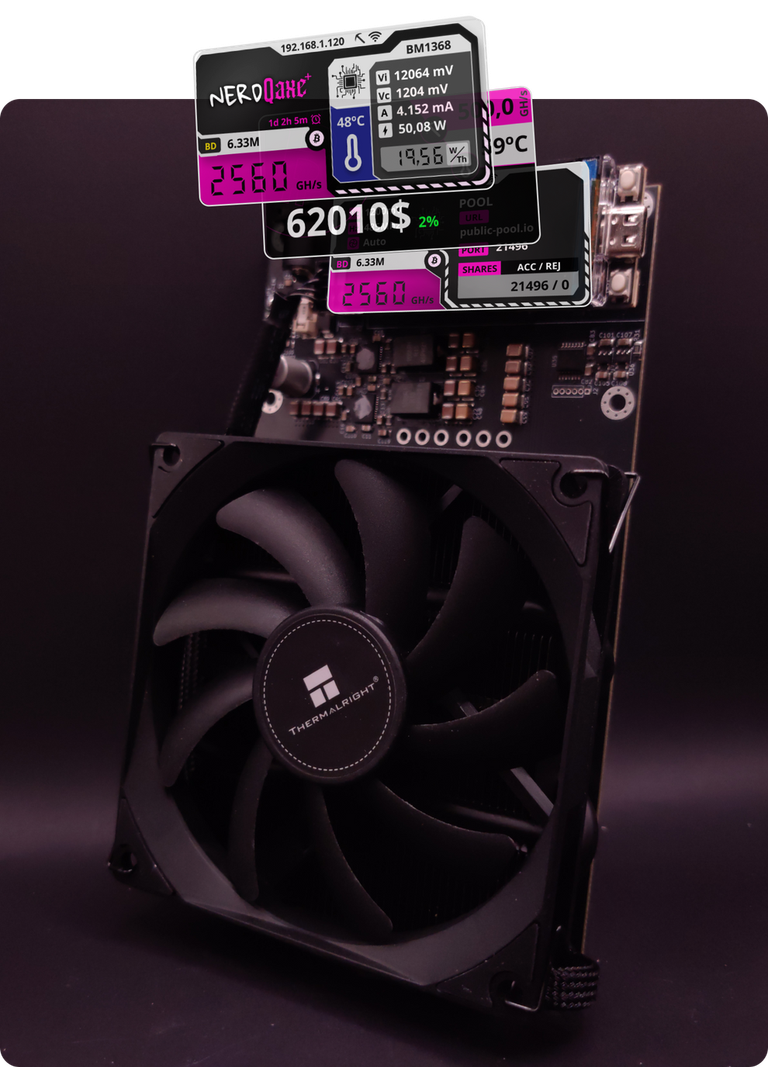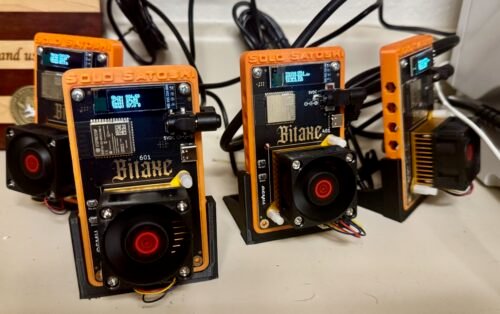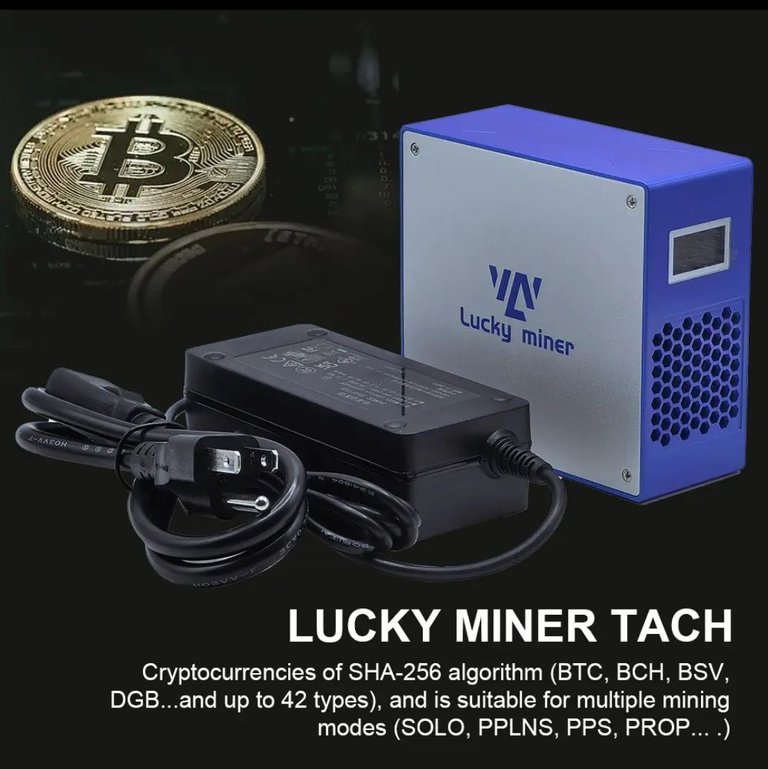
Have you ever found yourself in a situation where the numbers don't quite add up, yet you decide to take the leap anyway? That’s exactly what I did recently.
Two weeks ago, I shared an idea about using cryptocurrency mining as a kind of "power bank." The concept is simple: use surplus electricity generated by photovoltaic (PV) panels to mine cryptocurrency and offset electricity costs during the winter months.
(click the image to follow the link)
The Problem: Wasted Energy
Since I’m not connected to the power grid—and I don’t know when I will be—all the excess energy produced beyond my battery capacity is essentially wasted. Worse still, if the voltage gets too high, it risks damaging my installation. To prevent this, the inverter shuts the whole installation down, halting production completely for a time. Whether it automatically restarts or needs manual intervention is still unclear since I have no experience in that (it has just been installed and was only turned on for testing; also this usually happens in high summer)
The Execution
The idea of crypto mining seemed like a perfect way to utilize excess energy. However, I had to be cautious about the power consumption of the mining rig. High power consumption causes deep discharge cycles on batteries, which shortens their lifespan. On the other hand, smaller, more frequent discharge cycles are healthier for the batteries, making an energy-efficient mining device the key.
This led me to look into small-scale ASIC miners that are aimed for solo mining but with a possibility to mine in a pool as well.
While I appreciate the decentralization efforts of solo mining, the odds of successfully mining a block on my own are slim— farbworse than buying the winning lottery ticket. This made pool mining a more practical choice since it offers consistent and small payouts.
I researched several options (the last time I was up to date with mining wad 8 years ago) and evaluated their performance, energy efficiency, and cost-effectiveness:
- NerdQAxe+
Performance: 2.5 TH/s at 55 W (0.0455 TH/W)
Price: $465.45 (€443.09 / PLN 1890) if in stock, or around €300 ($315.14 / PLN 1,279.67) directly from the manufacturer.
Status: Out of stock at most retailers.
While the NerdQAxe+ seemed like an excellent option, availability and price were major hurdles. I decided to wait for the manufacturer to restock at a more reasonable price.

source:solomining.de
- Bitaxe Gamma (600 Series)
Performance: 1.2 TH/s at 17 W (0.07 TH/W)
Price: €200 ($210.10 / PLN 853)
Daily Revenue: $0.08
This device stood out for its energy efficiency (0.07 TH/W) and compact size. However, the high upfront cost relative to the meager daily income made it hard to justify the investment.

source: SoloSatoshi.com
- Lucky Miner LV07
Performance: 1 TH/s at 25 W (0.04 TH/W)
Price: $111.60 (€106.23 / PLN 453.15)
In the end, I opted for the Lucky Miner LV07. Although it’s less energy-efficient than the other options, the significantly lower price made it the most reasonable choice for my experiment...or the one I can afford to.


The Energy Autoconsumption
There is also one more reason why I want to pursue the idea - the energy autoconsumption.
The grid, the energy system in Poland, in general was designed and mostly built in 1970s-1980s when nobody thought the energy won't come out of burning coal. The world has changed, but system has not.
While in general, the Polish energy sector lacks energy up to a point there are blackout alerts, at a micro level, there are major issues with photovoltaic excess production. As I mentioned above, when this happens the current voltage rises and inverters are set up in a way then voltage crosses 253 Volts they shut down and the system produces no energy. This can be a nightmare for photovoltaic investors trashing their ROI.
I own a hybrid inverter that allows me to operate independently from the grid which means as long as I have autoconsumption in keeping voltage below 253 V. My idea is that when/if that happens, the system would turn on the heat pump to heat utility water in buffer, turn on Air Conditioning and turn my future crypto miners. By this way you're burning your free energy, while transforming it into heat/cold and crypto for later use.
Time will tell if this gamble pays off, but for now, I’m excited to see what the Lucky Miner LV07 can do!



